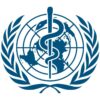COVID-19 critical care guideline offers support for frontline clinicians
The 49 recommendations and statements it included are geared to “support hospital clinicians managing critically ill adults with COVID-19 in the ICU. The target users of this guideline are frontline clinicians, allied health professionals, and policy makers involved in the care of patients with COVID-19 in the ICU,” said the document, written by a panel of 36 experts organized by the Surviving Sepsis Campaign, a joint program of the Society of Critical Care Medicine and the European Society of Intensive Care Medicine.
The document divides the recommendations into four categories: infection control, which includes 3 “best-practice” statements and 5 “weak” recommendations; hemodynamics with 2 “strong” recommendations and 13 weak ones; ventilation, with 1 best-practice statement, 6 strong recommendations, and 12 weak recommendations; and therapy with 7 weak recommendations. The guidelines also included five management questions considered by the writing panel without arriving at a recommendation because of insufficient evidence.
Useful guide nonspecialists
Some critical care medicine physicians saw the new guidelines as offering no surprises, but providing a very useful resource to guide management, especially for clinicians who may become involved in caring for COVID-19 patients despite having little experience caring for patients with acute respiratory distress syndrome (ARDS).
“For those of us who manage ARDS patients all the time, this is not a lot of new information, but many critically ill COVID-19 patients are now being cared for by physicians who have not cared for these patients before,” commented Mangala Narasimhan, DO, FCCP, a critical care medicine physician at Long Island Jewish Medical Center in New Hyde Park, N.Y. In fact, Dr, Narasimhan and associates took the new guidelines soon after their release and used them to create a one-page summary sheet to give to all their colleagues who are now seeing COVID-19 patients, she said in an interview. “The guidelines are very important for clinicians who are suddenly taking care of a roomful of patients with ARDS.”
“A lot of people want to know this information,” agreed David M. Ferraro, MD, FCCP, a pulmonologist and critical care medicine physician at National Jewish Health in Denver.
Perhaps the only potentially controversial aspect of the guidelines are a couple of weak recommendations that suggest using a high-flow nasal cannula (HFNC) rather than noninvasive positive pressure ventilation (NIPPV) in patients with acute hypoxemic respiratory failure who have not fully responded to conventional oxygen therapy. “This is controversial, and some of my colleagues are debating this,” said Dr. Narasimhan, but she noted that her clinic has decided to follow the recommended preference for HFNC, which seemed to have modest advantages over NIPPV in a recent meta-analysis (Intensive Care Med. 2019 May;45[5]:563-72).
Another issue with NIPPV is the higher risk for viral dispersion it seems to have, compared with a HFNC, said Dr. Ferraro. If a patient’s mask comes off during NIPPV, it creates a substantial risk for aerosolization of virus. That risk is likely lower with HFNC, especially a HFNC system that uses a small cannula without heating or humidification of the gas flow. “I’d recommend against NIPPV,” Dr. Ferraro said.
He also highlighted the value of quickly forgoing continued use of either of these ventilatory approaches in a declining patient and having a low threshold to switch to intubation. “Many clinicians now favor erring on the side of early intubation,” he noted, an approach that the new guidelines endorsed in a best-practice statement: “In adults with COVID-19 receiving NIPPV or HFNC we recommend close monitoring for worsening respiratory status and early intubation in a controlled setting if worsening occurs.”
One aspect of the COVID-19 pandemic that the new guidelines don’t address are some of the challenges being faced from skyrocketing numbers of patients and inadequate supplies and manpower to meet their acute clinical needs. “We need recommendations on how systems should manage when they are overwhelmed,” commented Dr. Ferraro, an omission that he also saw in the COVID-19 management guidance released on March 13, 2020, by the World Health Organization.
“Neither document gets into this in depth, but that wasn’t in their scope,” Dr. Ferraro acknowledged. He said that recommendations on how to deal with scarce resources, inadequate staffing, and the health of clinicians are probably best handled on a state or local level rather than trying to create recommendations that are applicable to the entire U.S. health system.
Dr. Narasimhan and Dr. Ferraro reported that they had no disclosures.






